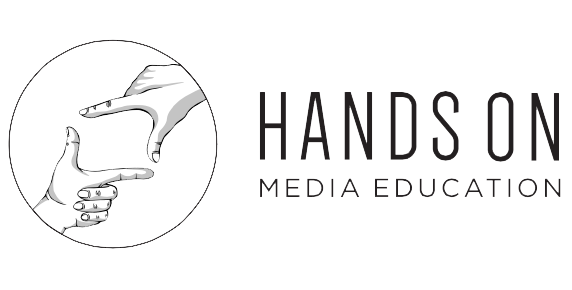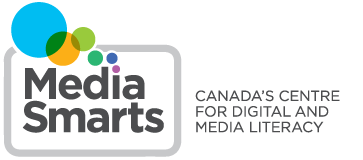
3 Lesson Plans: Digital Storytelling, Online & Community Engagement
Jessie was invited by MediaSmarts to design and develop a 3-part Digital Storytelling Workshop for teachers to help inspire young Canadians to care about their communities, both on and offline. These resources cover how to teach your students how to create a Digital Story which addresses a topic, theme or issue that is affecting them. All stages of production are covered, including research, storyboarding their idea into a visual organizational layout, practicing capturing quality photographs and interviews, and finally weaving their Digital Story into a finished project using computer editing software. You can download each lesson plan for free by following each link below.
What is media education?
With techniques of critical thinking, creative communication and computer, visual and aural literacy skills at its core, Media Education is a key part of a 21st century approach to learning. Media Education is the process through which individuals become media literate – able to critically understand the nature, techniques and impacts of media messages and productions. In Canadian schools, there is a growing awareness of the need to connect classroom learning to the real world and to bring media content into the classroom for analysis, evaluation and discovery. The importance of media education in Canada can be seen through the inclusion of media literacy outcomes in each provincial and territorial curricula. Definition drawn from MediaSmarts and Centre for Media Literacy.
What is media literacy?
Media literacy is a critical engagement with mass media and digital technologies. As media and communications platforms converge, our media practices are changing – from being external spectators and receivers of entertainment and information, to being active participants within an immersive media culture. This shift has necessitated an expanded notion of what it means to be media literate, which now includes an appreciation of individuals as both producers and consumers of media content and an understanding of the resulting social and cultural shifts that take place because of this. As a result, competencies for media literacy now include a variety of critical thinking, communication and information management skills that reflect the demands and reality of digital culture. Definition drawn from MediaSmarts.
What is digital literacy?
Digital literacy encompasses the personal, technological, and intellectual skills that are needed to live in a digital world. As the lines between ‘traditional’ and ‘new’ media become blurred and digital technology becomes increasingly central for full participation in society, our understanding of ‘digital competence’ has expanded from a focus on technical ability to include the broader social, ethical, legal and economic aspects of digital use. At the same time, digital literacy also encompasses many practical competencies for playing, learning and working in a knowledge economy that are separate from media literacy skills. Definition drawn from MediaSmarts and Centre for Media Literacy.
What is digital storytelling?
‘Using digital media to tell a personal narrative using digital photographs, video, text, voice or narration, and music is a Digital Story. The project format originated in 1998 with the formation of the Centre for Digital Storytelling in Berkley, California. This incredibly empowering and progressive, yet accessible and easily-adaptable workshop has been spreading around the world through a wide variety of communities, schools, community groups, and public health organizations.
Story ideas can emerge independently, or in a more guided framework, where a question is answered, such as: "What is an issue in my community (family, neighbourhood, city, country) that I am concerned about, why does it concern me, and what am I going to about it?", "Where do I see myself in 10 years from now? What are 2 important goals I have?" or "What has been the biggest personal challenge in my life, and how did I overcome it?".



